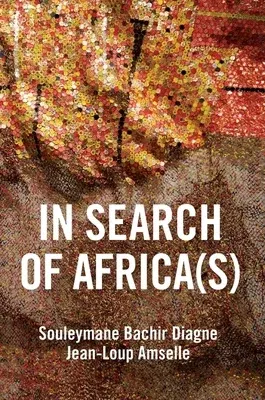This important book by two leading scholars of Africa examines a series
of issues that are central to the question of the postcolonial. The
postcolonial paradigm, and the more recent decolonial paradigm, raise
the issue of the universal: is the postcolonial the first phase of a new
universalism, one which would be truly universal because it would be
fully inclusive, or is it on the contrary the denial of all
universalism, the triumph of the particular and of fragmentation?
In addressing this issue Diagne and Amselle also tackle many related
themes, such as the concepts of race, culture and identity, the role of
languages in philosophy as practised in different cultural areas, the
various conceptions of Islam, especially in West Africa, and the
outlines of an Africa which can be thought of at the same time as
singular and as plural. Each thinker looks back at his writings on these
themes, comparing and contrasting them with those of his interlocutor.
While Amselle seeks to expose the essentialist and culturalist logics
that might underlie postcolonial and decolonial thought, Diagne
consistently refuses to adopt the trappings of the Afrocentrist and
particularist thinker. He argues instead for a total decentring of all
thought, one that rejects all 'centrisms' and highlights instead
branchings and connections, transfers, analogies and reciprocal
influences between cultural places and intellectual fields that may be
distant but are not distinct in space and time.
This volume is a timely contribution to current debates on the
postcolonial question and its new decolonial form. It will be of great
interest to students and scholars in a variety of fields, from African
studies and Black studies to philosophy, anthropology, sociology and
cultural studies, as well as to anyone interested in the debates around
postcolonial studies and decolonial thought

